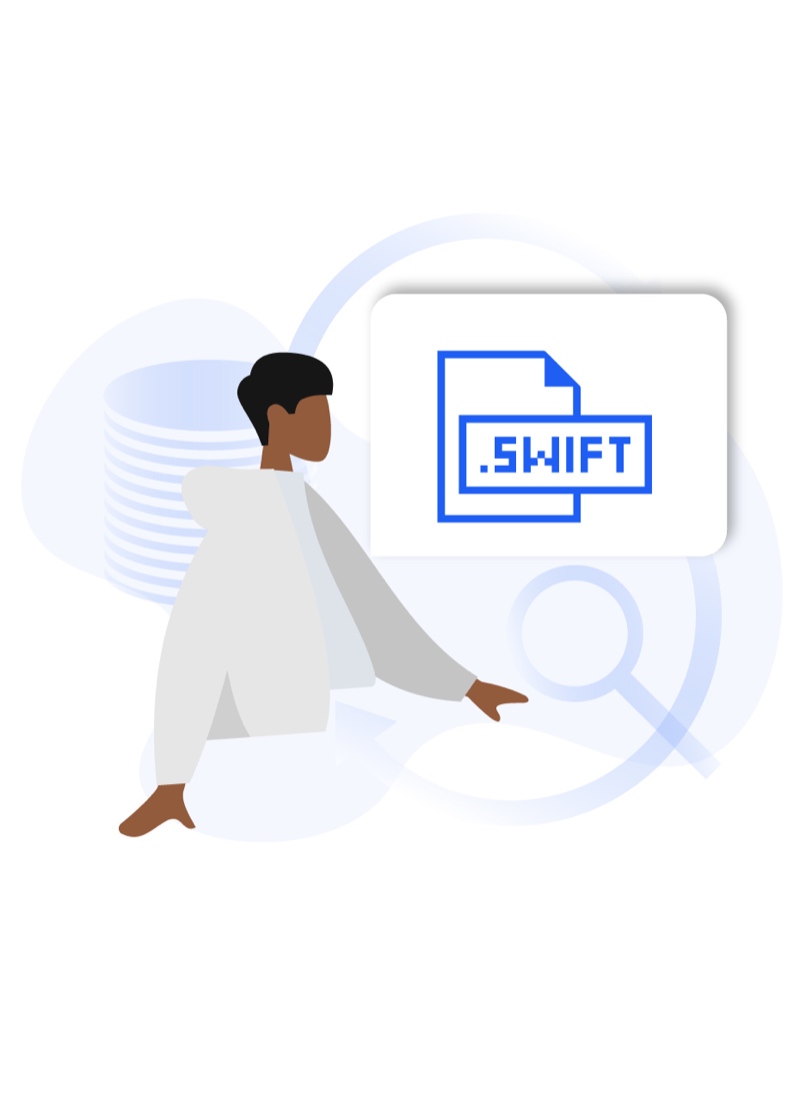
International transfer involves sending/receiving money overseas from your bank account to others. It can seem straightforward and easy, but making an international payment is a complex process behind the scenes, and often a confusing one at the user front. One wrong click can cost you your money. That's why it is important to ensure safety and fully know how the payment cycle works.
The following blog discusses one of the basics of international payments, the SWIFT code.
What is a SWIFT?
Society for Worldwide Interbank Financial Telecommunications or SWIFT is a member-owned cooperative that ensures security & safety during an international payment as per the standardized proprietary communications platform. SWIFT was established in 1973 in 15 countries and is currently operating in more than 200 countries, linking approximately 11,000 financial institutions.
What is a SWIFT code?
SWIFT code is like an international bank code or ID, which helps identify banks and other financial institutions globally to ensure the money reaches the right bank.
What does a SWIFT code look like?
A SWIFT code has 8-11 characters representing the city, country, bank, and branch. It looks something like; AAAABBCCXXX.
#1 AAAA is four letters denoting the bank's name, written in short.
#2 BB are two letters that denote the country in which the bank is located.
#3 CC are two characters denoting the city of the bank. It is a mix of letters and digits.
#4 XXX is three digits that represent the location of the bank's branch. However, it is optional to add to the code.
Are BIC and the SWIFT code the same?
The SWIFT code is also called the Bank Identifier Code (BIC) or SWIFT ID.

Are IFSC and the SWIFT code the same?
No. IFSC (Indian Financial System Code) and SWIFT code are different. IFSC is a unique code for every bank branch used to make transfers within the country. And SWIFT code is used to make international payments. However, you will need IFSC during an international transaction also.
When do you need the SWIFT code?
SWIFT code is required for sending & receiving money internationally. It is especially needed for international wire transfer and SEPA (Simple Euro Payments Area) payments to process the transaction globally. Though the SWIFT code does not help transfer funds, it is essential to know the bank's code before making the payment.
Is SWIFT code the same for all of the bank's branches?
Yes, the SWIFT code can be the same for all the bank’s branches because branches usually use the same code as the head office. However, you will need the IFSC code of a specific branch to transfer the money, whether nationally or internationally.
Are the SWIFT code and IBAN the same?
No, IBAN and the SWIFT code are different codes. IBAN (International Bank Account Number) is an individual's specific bank account number at a cross-border bank or financial institution to facilitate international transactions. And SWIFT code identifies the location of a bank globally.
Does every bank require a SWIFT code?
No. The need for a SWIFT code depends upon the country you are transacting with. For example, Eurozone countries like Belgium, Germany, Spain, Italy, etc., require a SWIFT code while making an international payment.
Where can you find the SWIFT code?
You can find the SWIFT code from the following options:
#1 You can check the bank statement of your account.
#2 You can visit the bank's official website and check if they have listed the code on it.
#3 The best way is to call and ask your bank directly.
Does every bank have a SWIFT code?
The SWIFT code is created to smoothen the payment cycle worldwide and is not mandated by regulatory bodies, i.e., every bank doesn't need a SWIFT code. Hence, if a bank does not deal in international transactions, it does not have to get the code.
Conclusion
SWIFT code is one of the basic and necessary aspects of international transfers. Though it is a safe network and there are fewer chances of mistakes if you have the correct details, it is still better to be cautious as your money is at stake. Take care of the tiniest details, cross-check the information with the recipient before making the payment, and use safe and secured platforms to make an international transfer.
SALT, a leading neobank, is working to make international transactions easier and safer for you, and you can do business globally without worrying about money getting lost in between.


